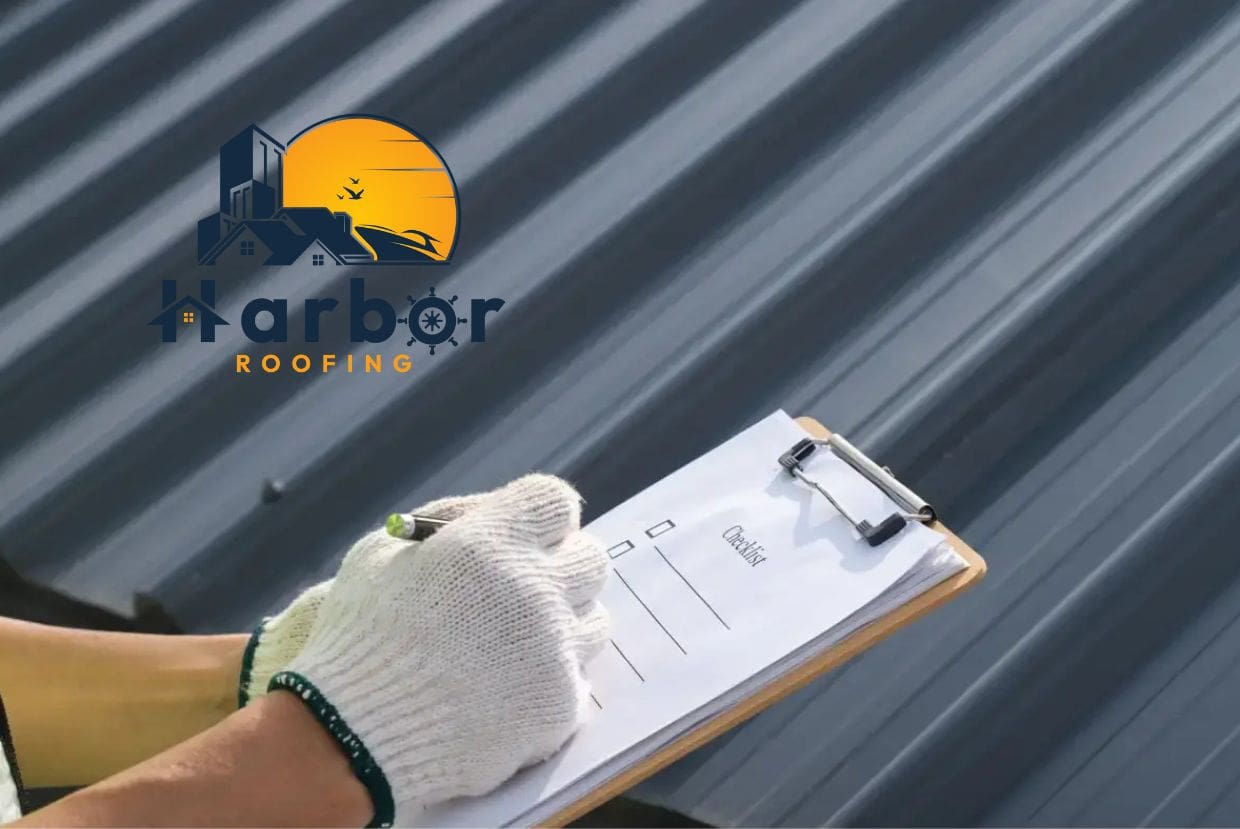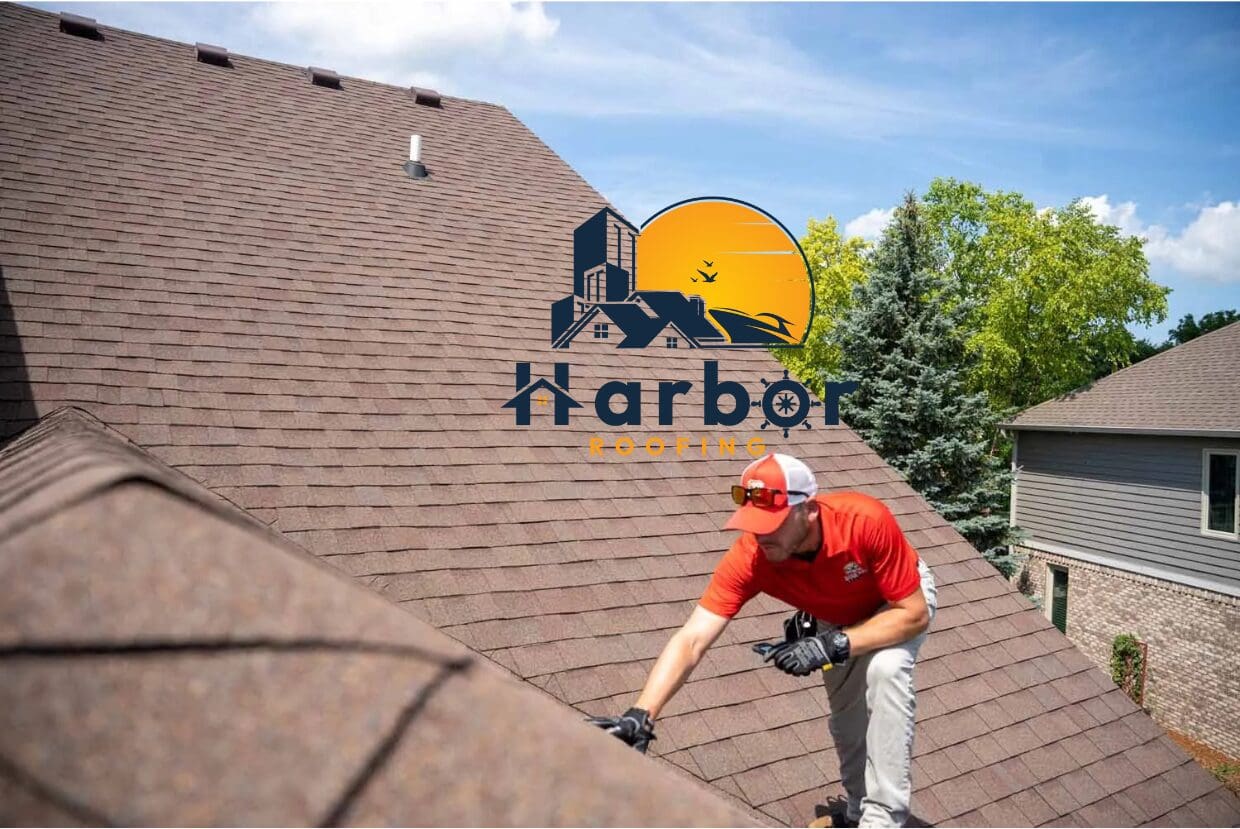Table of contents
- Answers to Top 15 Roofing Questions Homeowners Ask
- 1. How Long Does a Roof Last?
- 2. How Do I Know When It’s Time to Replace My Roof?
- 3. How Much Does a Roof Replacement Cost?
- 4. Can I Just Replace Part of My Roof?
- 5. What’s the Best Roofing Material for My Home?
- 6. What Causes Roof Leaks?
- 7. Can I Repair a Roof Leak Myself?
- 8. Will a New Roof Lower My Energy Bills?
- 9. What Is Roof Ventilation, and Why Is It Important?
- 10. Do Roof Warranties Really Matter?
- 11. How Do I Find a Trustworthy Roofing Contractor?
- 12. How Long Does It Take to Replace a Roof?
- 13. What’s the Best Season to Replace a Roof?
- 14. How Do I Prepare for a Roof Replacement?
- 15. How Do I Maintain My Roof?
- Conclusion
If there’s one thing almost every homeowner wonders about, it’s their roof. How long will it last? When should I replace it? Can I fix that small leak myself? Roofing can seem confusing, especially if you’re dealing with it for the first time. That’s why we’ve rounded up 15 of the most common roofing questions homeowners ask and answered them in plain, practical language.
Let’s jump right in.
Answers to Top 15 Roofing Questions Homeowners Ask

1. How Long Does a Roof Last?
This is one of the most common roofing questions homeowners ask. The lifespan of a roof depends on the material used, the quality of installation, and the level of maintenance it receives.
Asphalt shingle roofs, the most common type, typically last 20 to 30 years. Metal roofs can last between 40 and 70 years, and tile or slate roofs can last even longer, sometimes over a hundred years.
Keep in mind that climate plays a significant role in this process. A roof in a hot, sunny area will age faster than one in a mild or shaded region. Regular inspections and timely repairs can help extend the lifespan of your roof, regardless of the material.
2. How Do I Know When It’s Time to Replace My Roof?
Your roof will start to give you clues when it’s nearing the end of its life. Look for missing or curling shingles, sagging areas, frequent leaks, or daylight showing through the attic.
Dark streaks or bald spots on shingles also suggest the protective granules are wearing off. If your roof is more than 20 years old and showing these signs, it’s likely time to start planning a replacement.
A professional inspection can help you decide whether repairs will buy you more time or if replacement is the smarter move.
3. How Much Does a Roof Replacement Cost?
The cost of a roof replacement depends on your roof’s size, slope, material, and where you live. Here’s a general idea:
- Asphalt shingles: $5,000 to $12,000
- Metal roofing: $10,000 to $25,000
- Tile or slate: $15,000 and upward
It’s best to get at least two or three quotes from licensed contractors. That way, you’ll have a realistic sense of what’s fair for your area. Additionally, you can compare warranties, materials, installation details, and prices to find the best option for your needs.
4. Can I Just Replace Part of My Roof?
You can sometimes. Suppose damage is limited to a specific area, such as a small section after a storm. In that case, you may only need a partial replacement.
However, if your roof is older, replacing one part can make the rest of the roof look mismatched. It may also be harder to find shingles that perfectly match your existing color, especially if your roof has faded over time.
A professional roofer can evaluate whether a patch repair or full replacement will save you money and hassle in the long run.
5. What’s the Best Roofing Material for My Home?
The answer depends on your priorities. Is it cost, longevity, or appearance?
Asphalt shingles are the most affordable and widely used option, making them a popular choice for many homeowners. Metal roofs offer excellent durability, energy efficiency, and low maintenance, which makes them a smart long-term investment. If you live in a warm, sunny climate, clay or concrete tiles are ideal, as they combine curb appeal with heat resistance.
For those seeking unmatched longevity and a timeless look, slate roofs are an excellent choice, though they tend to be heavier and more expensive to install. In the end, your roofing contractor can help you choose the material that best suits your home’s design and local weather conditions.
6. What Causes Roof Leaks?
Leaks usually happen when water finds a weak spot. Common culprits include missing or cracked shingles, damaged flashing around vents or chimneys, clogged gutters, or loose roof seams. In some cases, it’s not the roof itself but poor attic ventilation or condensation that mimics a leak.
Even a small leak can lead to bigger problems like mold, damaged insulation, or rotting wood, so it’s best to call a professional as soon as you notice signs of moisture.
7. Can I Repair a Roof Leak Myself?
It’s tempting to grab some sealant and patch a leak, but roofing repairs are rarely that simple. The leak you see inside may not be directly above the spot causing it, as water often travels before it appears.
DIY fixes can temporarily stop the drip but often miss underlying issues. A licensed roofer will identify the actual source and repair it properly to prevent it from recurring. That peace of mind is worth it.
8. Will a New Roof Lower My Energy Bills?
Yes, a new roof can make a noticeable difference, especially if you choose an energy-efficient material. Reflective metal roofs and modern asphalt shingles with cooling technology help deflect sunlight and reduce heat buildup.
Better attic insulation and ventilation also improve energy efficiency, keeping your home cooler in summer and warmer in winter. The result? Lower energy bills and a more comfortable home.
9. What Is Roof Ventilation, and Why Is It Important?
Roof ventilation allows hot, humid air to escape from your attic rather than getting trapped. Without it, heat and moisture can accumulate, causing the roof decking to rot and the shingles to age prematurely.
Proper ventilation maintains stable temperatures, prevents ice dams in winter, and reduces cooling costs in summer. It’s one of those details you don’t see but makes a big difference in how long your roof lasts.
10. Do Roof Warranties Really Matter?
Absolutely! A roof warranty protects both your materials and installation. However, you need to understand what’s included.
Manufacturer warranties cover defects in roofing materials, while workmanship warranties cover the labor and installation of the roofing materials. Before signing anything, ask relevant questions, such as how long each warranty lasts, what it covers, and what actions might void it. The fine print matters, especially if you ever need to file a claim.
11. How Do I Find a Trustworthy Roofing Contractor?
Start by asking friends or neighbors for referrals. Then check for licensing, insurance, and solid customer reviews. A good contractor will give you a written estimate, clearly explain the materials and timelines, and won’t pressure you into a quick decision. Avoid anyone who requests complete payment upfront or offers suspiciously low prices.
Professionalism, experience, and transparency are key signs you’re dealing with the right roofer.
12. How Long Does It Take to Replace a Roof?
Most residential roof replacements take one to three days. The timeline depends on your roof’s size, shape, material, and, of course, the prevailing weather conditions. Metal and tile roofs can take a bit longer since they require more precision.
A reputable contractor should give you a clear schedule and keep you updated throughout the process.
13. What’s the Best Season to Replace a Roof?
Spring and fall are the best times, as the weather is moderate. In the summer, extreme heat can make installation more challenging for workers and affect certain materials. Roofing can still be done in winter, especially for metal roofs, but only if the temperature and conditions are safe for installation.
If your roof is leaking, don’t wait for the “right” season. It’s always better to fix or replace it before more damage occurs.
14. How Do I Prepare for a Roof Replacement?
A few simple steps can make the process smoother:
- Move your car and outdoor furniture away from the house.
- Take down fragile items or wall decor inside.
- Cover items in your attic to protect them from dust and other elements.
- Notify your neighbors that there will be noise.
The roofing crew will handle debris removal and cleanup, but preparing your space ahead of time helps everything go more smoothly and safely.
15. How Do I Maintain My Roof?
Roof maintenance is simple, yet it makes a significant difference in how long your roof lasts.
Schedule a professional inspection once a year, and especially after major storms. Keep your gutters clean, trim overhanging branches, and remove debris or moss buildup. Catching minor issues early, like loose flashing or a missing shingle, prevents costly repairs later. Think of maintenance as protecting your investment, not just your roof.

Bonus Question: Do I need to replace my roof if it’s not leaking?
Not always. If your roof still looks solid, performs well, and passes inspection, you can keep it. However, if it’s more than 20 years old, starting to sag, or losing shingles frequently, it may be time to plan ahead. Replacing your roof before it leaks can save you from interior water damage and structural issues that are much more expensive to fix later.
Conclusion
Understanding how your roof works, what it requires, and when to take action helps you make more informed decisions and save money in the long run. At Harbour Roofing, we believe roofing shouldn’t be stressful or confusing. That’s why we’ve answered these popular roofing questions homeowners ask.
If you still have questions about your roof, we have answers. We’re here to inspect, repair, or replace your roof with honesty, care, and professionalism. Reach out today, and let’s make sure your home stays protected for years to come.



